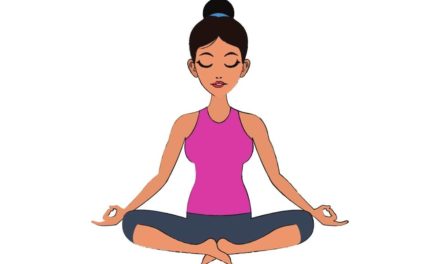Hatha yoga, an ancient practice with a core set of principles, offers a variety of benefits for modern practitioners. While there may be variations in styles and techniques, the fundamental elements remain consistent.
Origins and Philosophy
The term “Hatha” comes from the Sanskrit words “ha” and “tha,” meaning “sun” and “moon” respectively. In Western yoga, the emphasis is often placed on physical mastery, aligning with this interpretation. However, a deeper meaning exists. Traditionally, Hatha signifies “forceful” or “determined will,” reflecting the dedication required to achieve enlightenment through physical and mental disciplines.
Holistic Approach to Wellness
Hatha yoga employs postures (asanas) and breathing techniques (pranayama) to promote physical and mental well-being. Asanas enhance flexibility, strength, and circulation, while pranayama regulates breath and calms the mind. This gentle practice is suitable for all ages and abilities. It improves overall health, reduces stress, and fosters mental clarity. Additionally, Hatha yoga is said to possess spiritual properties, guiding practitioners towards inner peace and tranquillity.
The Path to Higher Consciousness
Ultimately, Hatha yoga aims to achieve a balance between the physical and energetic aspects of the human being. This state of harmony awakens the central nervous system’s potential, paving the way for a higher state of consciousness.
Historical Roots and Practices
Hatha yoga stems from the tantric tradition. However, tantra’s misuse by some practitioners led to a decline in its reputation during the Middle Ages. Hatha yoga emerged as a more accessible and structured practice. A typical Hatha yoga session incorporates sun salutations (focusing on breath), balancing postures, standing poses, backbends, twists, forward bends, and inversions. The practice concludes with a period of relaxation.
Detoxification and Inner Harmony
Hatha yoga is considered a science of purification. It cleanses not just the body but also the mind. This holistic purification process involves six distinct kriyas (cleansing practices) that eliminate toxins and blockages in the body’s energy channels (nadis).
Spiritual Connection and Universal Awareness
By focusing on the breath and turning inward, Hatha yoga facilitates a connection with one’s inner wisdom and intuition. This practice fosters a greater sense of belonging to the universe and all living things.
Accessibility and Adaptability
Hatha yoga’s strength lies in its inclusivity. The postures and techniques can be modified to accommodate individual needs and limitations, making it accessible to a broad range of practitioners.
The Six Kriyas of Hatha Yoga
- Neti: Nasal cleansing
- Dhauti: Gastric purification
- Nauli: Abdominal strengthening exercises
- Basti and Shankha Prakshalana: Intestinal cleansing
- Kapalbhati Pranayama: Frontal sinus cleansing
- Trataka: Focused concentration
These kriyas ensure the proper functioning of the nadis, allowing energy to flow freely.
List of Hatha Yoga Asanas (Body Postures)
Click the Yoga postures links below to read about each Asana
SITTING ASANAS
- PARVATASANA
- BRAHMAMUDRA
- DANDASANA
- JANU SHIRSHASANA
- PASCHIMOTHANASANA
- BADDHA KONASANA
- GOMUKHASANA
- SINGHASANA
- SHASHANKASANA
- USTRASANA
- MARJARIASANA
- VYAGHRASANA
- YOGA MUDRA
- VAKRASANA
- VAJRASANA
LYING ASANAS
- SHALABHASANA
- BHUJANGASANA
- DHANURASANA
- MATSYASANA
- ANANTASANA
- ARDHA HALASANA
- UTTHANPADASANA
- ARDHA PAWANMUKTASANA
- SETU BANDASANA
- KATIVAKRASANA
- NAUKASANA
- CHAKRASANA
- MAKARASANA
STANDING ASANAS
- VEERBHADRASANA
- KONASANA
- STHITAPRARTHANASANA
- TRIKONASANA
- KATICHAKRASANA
- TIRYAKA TADASANA
- GARUDASANA
- ADHO MUKHA SVANASANA
- PRISTHASANA
- PADAHASTASANA
- KHADA CHAKRASANA
- VRIKSHASANA
- NATARAJASANA
- UTKATASANA
- SIRSASANA
What are the main physical and mental benefits of practising Hatha Yoga Asanas?
Physical Benefits:
- Improved Flexibility: Stretching in yoga poses lengthens muscles and increases the range of motion in your joints. This can help with everyday activities and reduce the risk of injury.
- Increased Strength: Holding yoga poses builds muscle strength, especially in your core, which is essential for good posture and stability.
- Enhanced Balance: Balancing postures challenge your proprioception (body awareness) and vestibular system (balance system), improving your ability to stay steady on your feet.
- Improved Blood Flow: Yoga poses can increase circulation, bringing oxygen and nutrients to your tissues and helping to remove waste products.
- Reduced Back Pain: Strengthening core muscles and improving flexibility in the spine can help alleviate back pain.
Mental Benefits:
- Stress Reduction: Focusing on your breath and movement during yoga poses can help to quiet your mind and reduce stress hormones.
- Increased Relaxation: Yoga can promote feelings of relaxation and well-being, helping you to unwind after a long day.
- Improved Mental Clarity: By focusing on the present moment, yoga can help to improve concentration and mental clarity.
- Enhanced Mood: Exercise, including yoga, has been shown to boost mood and reduce symptoms of depression and anxiety.
- Greater Body Awareness: Yoga poses help you to become more aware of your body and its sensations, which can be beneficial for both physical and mental well-being.
Overall, practising Hatha Yoga Asanas can lead to a healthier, happier, and more balanced you.
The practice of Hatha Yoga is often misunderstood in the modern world as merely a system of physical exercise—a way to touch your toes or stand on your head. However, the ancient texts describe Hatha Yoga not as a fitness regimen, but as a somatic technology designed to purify the body and prepare the mind for higher states of consciousness. “Ha” (Sun) and “Tha” (Moon) represent the dualities of life: heat and cold, effort and surrender, masculine and feminine, sympathetic and parasympathetic.+1
Hatha Yoga is the practice of balancing these opposing forces. When this balance is achieved, the benefits cascade through every layer of the human experience, from the density of our bones to the subtlety of our thoughts. Below is a comprehensive exploration of the mental and physical benefits of a consistent Hatha Yoga practice.
I. The Physical Temple: Anatomy and Physiology
The most immediate and visible benefits of Hatha Yoga occur in the Annamaya Kosha, or the physical body. Unlike dynamic forms of exercise that focus on repetition and cardiovascular output, Hatha Yoga focuses on static holds and alignment, which offers unique physiological advantages.
1. Fascial Release and Joint Mobility
While “flexibility” is the common term, Hatha Yoga actually targets the connective tissue matrix of the body, known as fascia. Sedentary lifestyles cause fascia to dehydrate and stiffen, “gluing” muscles together and restricting range of motion. The sustained holds in Hatha Yoga (often 30 seconds to several minutes) allow the fascia to remodel and hydrate.+1
Furthermore, the practice stimulates the production of synovial fluid in the joints. This fluid acts as a lubricant and a shock absorber. As we age, our joints naturally dry out, leading to stiffness and arthritis. The deliberate compression and release of joints in poses like Padmasana (Lotus) or Virabhadrasana (Warrior) acts like a pump, flushing stale fluid out and drawing fresh, nutrient-rich fluid in. This is vital for cartilage health, as cartilage has no blood supply of its own and relies on this “sponge effect” for nutrition.+2
2. Functional Strength and Bone Density
Hatha Yoga is a weight-bearing exercise. Poses like Chaturanga Dandasana (Four-Limbed Staff Pose) or Vrikshasana (Tree Pose) require you to lift and stabilize your own body weight. This places stress on the bones, which stimulates osteoblasts—the cells responsible for bone formation. This is a critical preventative measure against osteoporosis and osteopenia.+1
Muscularly, Hatha builds “functional strength.” In a gym setting, muscles are often isolated (e.g., a bicep curl). In Yoga, the body works as a synergistic unit. A simple standing pose requires the engagement of the arches of the feet, the quadriceps, the pelvic floor, the core, and the spinal extensors. This teaches the muscles to fire in coordination, improving overall stability and preventing injury in daily life.
3. Lymphatic Drainage and Immunity
The lymphatic system is the body’s sewage treatment plant, responsible for removing toxins and waste. Unlike the circulatory system, which has the heart as a pump, the lymphatic system relies on muscular contraction and gravity to move lymph fluid.
Hatha Yoga is exceptionally efficient at moving lymph. Inversions like Viparita Karani (Legs Up the Wall) or Sirshasana (Headstand) reverse the effect of gravity on the legs, draining fluid from the lower extremities. Twisting poses like Ardha Matsyendrasana exert a “wring-and-soak” effect on the abdominal organs. When you twist, you compress the organs, squeezing out old blood and lymph. When you release, fresh oxygenated blood rushes in. This process boosts immunity by ensuring that white blood cells can circulate freely to fight infection.
II. The Energetic Body: Nervous System Regulation
The bridge between the physical and mental benefits of yoga is the nervous system. This is where Hatha Yoga shines as a therapeutic intervention for modern stress.
1. The Vagus Nerve and the Relaxation Response
Modern life keeps us in a chronic state of “fight or flight” (Sympathetic activation), characterized by high cortisol, shallow breathing, and muscle tension. Hatha Yoga deliberately triggers the opposite. Deep, diaphragmatic breathing (Pranayama) sends a signal through the Vagus Nerve to the brain that “you are safe.”
When you hold a challenging pose like Utkatasana (Chair Pose), your body wants to panic. By consciously slowing the breath and remaining still in the discomfort, you are training your nervous system to remain calm under pressure. This is known as increasing “Vagal Tone.” Higher vagal tone is associated with better digestion, lower heart rate, and better emotional regulation.
2. Endocrine Balance
The compression and extension of specific areas of the body are believed to stimulate the endocrine glands. For example, Setu Bandhasana (Bridge Pose) and Sarvangasana (Shoulderstand) bring the chin to the chest, creating a “throat lock” (Jalandhara Bandha). This gentle pressure stimulates the thyroid and parathyroid glands, which regulate metabolism and calcium levels.+1
Similarly, forward bends act as a soothing balm for the adrenal glands. By folding inward and darkening the eyes, we reduce sensory input, allowing the adrenals (which pump out stress hormones) to down-regulate.
III. The Mental and Emotional Landscape
As the body opens and the nervous system calms, the benefits of Hatha Yoga penetrate the mind. The physical practice is merely a tool to access the mental state.
1. Neuroplasticity and Cognitive Function
Hatha Yoga is a form of moving meditation that requires Dharana (focused concentration). You must pay attention to the alignment of your foot, the tilt of your pelvis, and the rhythm of your breath simultaneously. This intense focus strengthens the prefrontal cortex—the area of the brain responsible for executive function, decision making, and impulse control.
Studies suggest that regular yoga practice increases the volume of the hippocampus, the part of the brain involved in memory and learning. By constantly learning new motor patterns (asanas) and crossing the midline of the body, you are forging new neural pathways, keeping the brain agile and youthful.
2. Emotional Resilience and Trauma Release
There is a saying in the yoga community: “The issues are in the tissues.” Somatic psychology supports the idea that unexpressed emotions and trauma are often stored in the body as chronic tension, particularly in the hips, psoas muscle, and jaw.
Hatha Yoga provides a safe container to release this stored energy. Hip openers like Eka Pada Rajakapotasana (Pigeon Pose) are notorious for bringing up tears or waves of emotion. This is not a side effect; it is a primary benefit. By staying present with the physical sensation of tightness and breathing through it, practitioners often experience a release of old emotional baggage. This leads to a profound sense of lightness—not just physically, but psychologically.
3. Mindfulness and the Antidote to “Autopilot”
We live much of our lives on autopilot, lost in ruminations about the past or anxieties about the future. Hatha Yoga demands presence. You cannot safely perform a balance pose like Natarajasana (Dancer Pose) while thinking about your grocery list; you will fall.
This enforced presence trains the mind to inhabit the “Now.” Over time, this translates off the mat. A Hatha Yoga practitioner learns to observe their reactions without immediately acting on them. This creates a “gap” between stimulus and response—a space where we can choose to respond with patience rather than react with anger.
Conclusion
The “full” benefit of Hatha Yoga is not the sum of these parts, but the synergy of them. It is the feeling of walking out of a class with a spine that feels longer, a chest that feels more open, and a mind that is as clear as a still lake.
By integrating the body, breath, and mind, Hatha Yoga offers a holistic antidote to the fragmentation of modern life. It restores the body’s natural intelligence, regulates the nervous system’s alarm bells, and provides a sanctuary for the spirit. Whether you are 18 or 80, the practice meets you where you are, offering a path not just to a better body, but to a better life.
Hatha Yoga FAQs for Weight Loss
- Is Hatha yoga good for weight loss? Yes, Hatha yoga can be a helpful tool for weight loss, but it’s most effective when combined with a healthy diet. It burns calories, builds muscle, and improves metabolism.
- Which Hatha yoga asanas are best for weight loss? Focus on dynamic flows, strength-building poses like Warrior poses, and core work like Boat pose. Sun salutations are also excellent for calorie burning.
- How often should I practice Hatha yoga to lose weight? Aim for at least 3-4 sessions per week for optimal results. Consistency is key!
- Will Hatha yoga help me tone my body? Absolutely! Holding yoga poses builds muscle, especially in your core, leading to a more toned and sculpted physique.
- I’m a beginner. Can I still do Hatha yoga for weight loss? Yes! Many Hatha yoga poses can be modified for beginners. There are also plenty of beginner-friendly classes available.
- Does Hatha yoga help with belly fat loss? While yoga won’t target specific fat loss areas, core strengthening poses can help reduce overall belly fat as part of a weight loss plan.
- Will I see weight loss results quickly with Hatha yoga? Weight loss takes time and dedication. While you might see some initial changes, combine yoga with a healthy diet for sustainable results.
- Does Hatha yoga improve my metabolism? Building muscle through yoga can slightly boost your metabolism, helping you burn more calories at rest.
- I struggle with emotional eating. Can Hatha yoga help? Yes! Yoga promotes mindfulness and stress reduction, which can help you manage emotional eating triggers and make healthier food choices.
- What are some additional benefits of Hatha yoga for weight loss? Beyond weight loss, yoga improves flexibility, balance, and overall well-being, making it a well-rounded approach to fitness.





